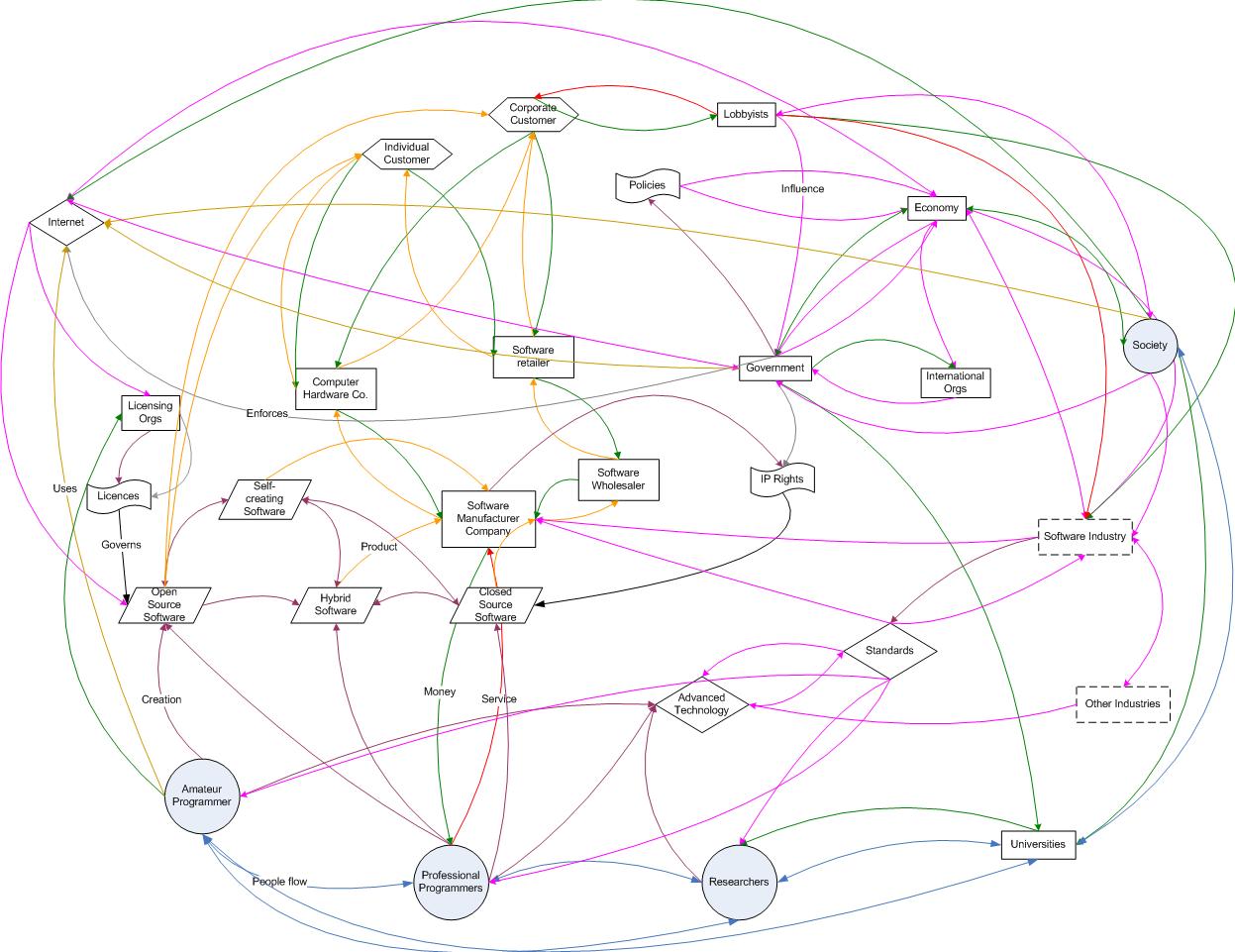Difference between revisions of "Future of the Creation of Software"
| Line 66: | Line 66: | ||
<b>[[Economic implications]]</b> <br> | <b>[[Economic implications]]</b> <br> | ||
# What are the economic benefits and detriments of developing open source system? | # [http://scenariothinking.org/wiki/index.php/Economic_implications What are the economic benefits and detriments of developing open source system?] | ||
# How does society influence creation of software? | # [http://scenariothinking.org/wiki/index.php/Economic_implications How does society influence creation of software?] | ||
<br> | <br> | ||
Revision as of 14:40, 1 June 2006
. Good start. . The driving forces you have done have generic titles, and do not indicate a direction. Something like "economic forces" should be "increase in economy as prime driver in societies" which explores how we have moved from systems of social capital, to capital (i.e. youth caring for the old, to pension schemes caring for the old) . Would like to see at least 8 driving forces (that is 2 DF /per person in the group) . Have you found other groups DF to be useful to you? . The systems diagram looks GREAT, but it does not label the links!! The reason we are making a systems diagram is that we can map how things interconnect. Without the labels we do not differentiate the connections from each other. Otherwise it is a good map. . GOOD LUCK!
GROUP COMPOSITION
We are the MBA students from the Amsterdam Business School UvA. Our Group comprises of:
- Chikako Okada
- Shubhra Deshmukh
- Sonja Srubar
- Yin-Chen Hsu
INTRODUCTION
Two models of software creation are locked in a battle to the end. Will most software be created as proprietary systems or created as open source in all it hybrid forms. Can 25 000 best in class developers in Redmond produce a superior operating system in contrast to a million registered Linux amateur developers? At the heart of the debate are conceptions of ownership, creativity, professionalism, and the consumer economy. Will software patents make a comeback, as a possible limitation of open source in the future? Is there a third way, with open standards such as used in MPEG4 and by SAP?
UNCERTAINTIES
The software creation is plagued with different uncertainities. These can be grouped into following:
- Technological Uncertainities
- Impact of Industry
- Impact of Government
- Impact of Economic conditions
These are elaborated in next section.
RESEARCH QUESTIONS AND ANSWERS
To check answers please click on the topic heading.
Technological Uncertainities
- What is open source software?
- Is the open source easier to develop than closed source?
- Who would be responsible for maintenance, quality and reliability control?
- Can software created on open-source OS be copy righted?
- Won’t adoption of open source software stifle innovation of software?
- How does open standards used in MPEG4 and SAP work? Does this mean part of these software is changeable/copyrighted while is part is not?
- Does system thinking work in open source development?
- Security issues in open source
- Commercialization of open source software.
- How is the role of the programmer affected by changing technology?
- What is automatic software development?
- What are the implications of an automatic code developer?
- What is generic software?
- Is there any automated self generating software system? If yes, How does it works?
- What role does industry play?
- Who are the major players supporting open source and proprietary software?
- Mixing of the open and closed source - why firms want to do it? Effect on industry as whole?
- Future of coexistence of Linux and Windows
- What is the history of open source versus proprietary software?
- How does open source work in line (or violates) intellectual property rights?
- Problems of monopoly in case of closed source?
- What are the economic benefits and detriments of developing open source system?
- How does society influence creation of software?
DRIVING FORCES
Based upon the research question and answers, we came up with following driving forces:
System Diagram
Different relationships are represented by lines of different colors. The legend is as given below.
Legends:
Black - Governs
Blue - people flow
Gold - Uses
Grey - Enforces
Green - Money
Orange - Product
Pink - Influence
Purple - Creation
Red - Service
